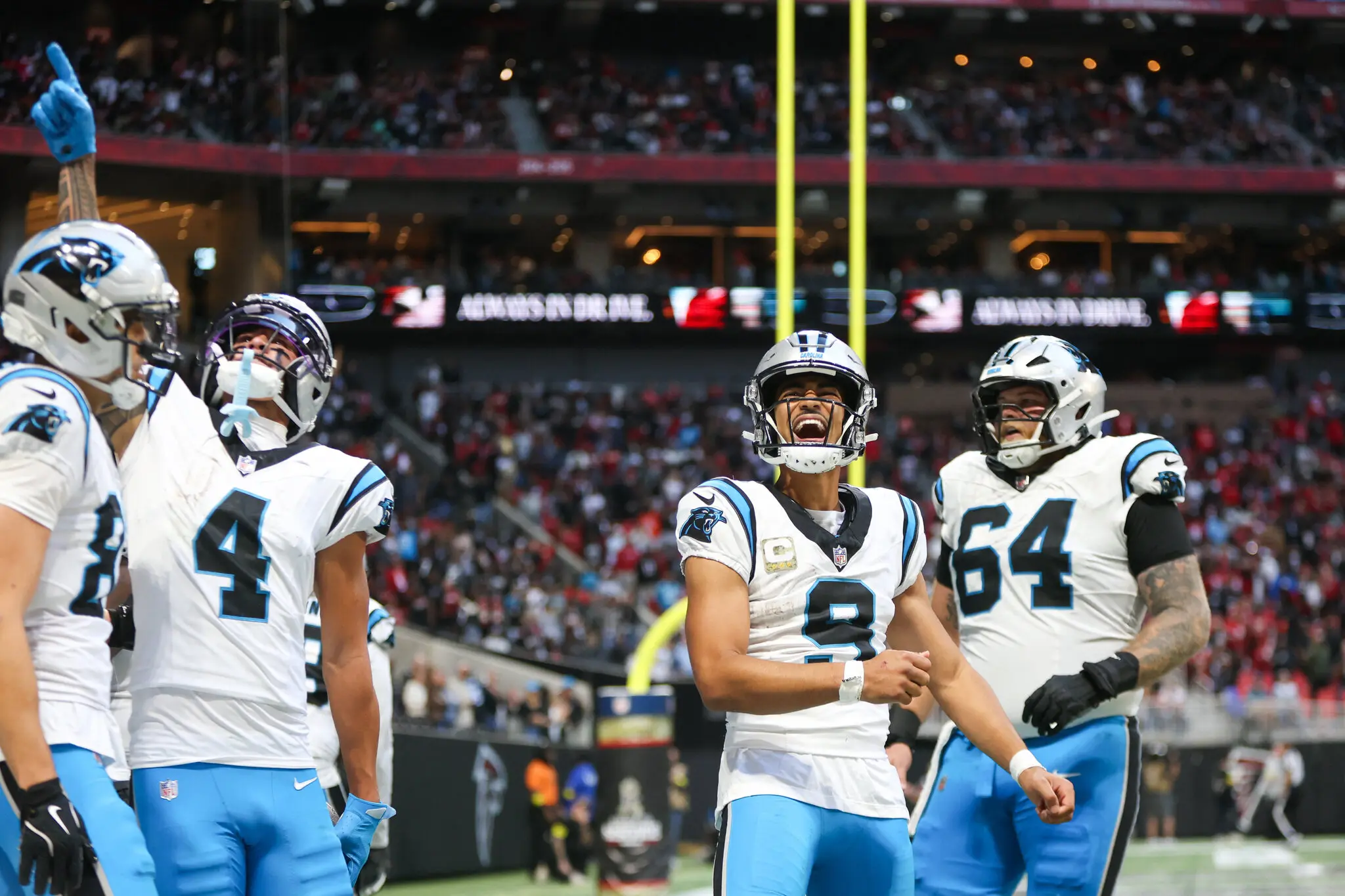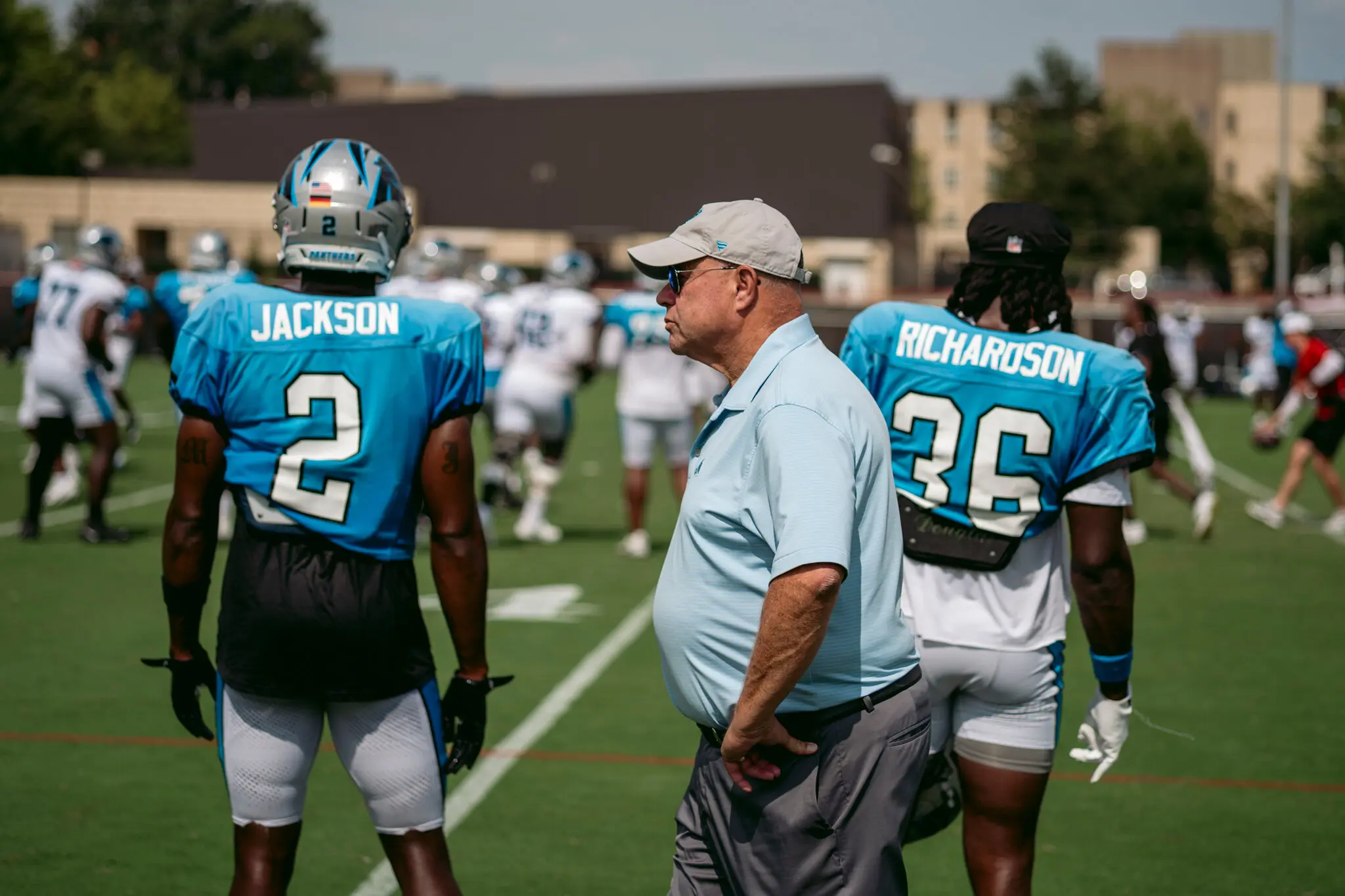Hedge Fund Billionaire Thinks He’s Finally Fixed the Panthers
Admitting Mistakes, Not Market Losses
David Tepper, the billionaire founder of the $20 billion hedge fund Appaloosa Management, believes he may have finally found a way to turn around his underperforming N.F.L. franchise. Known more for swagger than modesty, Tepper is now openly acknowledging that he has made mistakes — and insists he is in the process of correcting them.
He’s not talking about bad trades in tech stocks or misjudged currency bets. He’s talking about the Carolina Panthers, the team he bought in 2018 for a then-record $2.3 billion.
Under Tepper, the Panthers have ranked among the worst teams in the league, winning only about 33 percent of their games and missing the playoffs every season. In that stretch, he has cycled through seven head coaches and 10 quarterbacks, clashed with reporters, and been fined $300,000 for tossing a drink at a fan. A planned team complex in South Carolina was also abandoned after a nasty dispute with local officials.
Now, eight seasons into his tenure as an N.F.L. owner, Tepper says he’s both humbled and confident he has finally landed on a better approach. He has revamped the coaching staff and front office, reshaped the roster, expanded the analytics department, upgraded the stadium and built a new training facility — all backed by his considerable fortune. Forbes pegs his net worth at roughly $24 billion, making him the league’s second-richest owner.
So far, the changes appear to be paying off. The Panthers have started the current season 6-5, already surpassing last year’s win total and sitting just a half-game out of first place in their division.
“You really know you’re successful when you know what you don’t know,” Tepper said in a rare interview at team headquarters in Charlotte, N.C. Holding up his cellphone as a stand-in for his hedge fund, he said he’s usually early to spot opportunities — and just as quick to see when he’s wrong. The challenge, he added, is that football runs on a different “cadence” than markets, forcing him to adjust.

A Fast Trader Forced to Slow Down
In the Carolinas, years of losing have made Tepper deeply unpopular with many fans, a reminder that even billions can’t buy instant success — and that patience can matter more than speed.
“Dave, as a person who’s a trader, wants to move very quickly on things, and that’s how he’s been successful,” said Marc Ganis, a consultant to N.F.L. teams. “He is a very aggressive fellow, incredibly smart, and patience is something that you learn as a team owner.”
Tepper, 68, is widely regarded as one of the most successful hedge fund managers in the country. Since its launch in 1993, Appaloosa has generated gross annualized returns of more than 28 percent, according to Institutional Investor. A former Goldman Sachs junk bond trader, he built his fortune by making contrarian bets on distressed debt and other high-risk assets.
N.F.L. franchises, though, are hardly distressed. They generate hundreds of millions of dollars annually from the league’s rich media deals, and team values have soared. But owners cannot control injuries, bad bounces or on-field execution.
Tepper has enjoyed more straightforward success with Charlotte F.C., the Major League Soccer expansion club he owns. The team, which began play in 2022, reached the playoffs for the first time this season and regularly draws strong crowds. Financially, Tepper said, the Panthers have “become a Nasdaq stock,” nearly tripling in value to an estimated $6.4 billion since he bought them. He likened the purchase to a “T-bill type investment,” expecting steady appreciation over time.
“I have a knack for catching pretty good investments,” he said.
He remains bullish on the N.F.L.’s future, predicting that broadcasters will eventually use artificial intelligence to serve highly targeted advertising during games. Once the league can prove how much extra value those ads generate, he said, it will be able to charge even more for media rights.
Juggling Wall Street and the N.F.L.
Unlike many N.F.L. owners who focus almost entirely on their franchises, Tepper still keeps a tight grip on his hedge fund. He wakes up early to track overnight developments and sets aside time at both the opening and closing bells to review Appaloosa’s portfolio.
Dan Morgan, the Panthers’ general manager since 2024, recalled sitting in Tepper’s office to discuss the team’s future. Behind him, a TV tuned to CNBC flashed breaking financial news. Tepper immediately called his traders, rattled off orders, hung up, and dove back into the football conversation without missing a beat.
“I don’t know how he does all that,” said Morgan, who spent seven seasons playing linebacker for the Panthers. “Whatever he saw, it was just crazy.”
Tepper’s schedule veers between his hedge fund office in New Jersey, his teams in Charlotte, and Florida, where his mother lives.
He pushes back against the idea that he micromanages football decisions. Morgan said Tepper is engaged and asks questions but leaves day-to-day roster calls to the football staff. Tepper said his main contribution is evaluating how much players are worth in a salary-capped system.
He argues that part of the Panthers’ early struggles stemmed from the aging, high-priced roster he inherited, which took years to unwind. His hiring of college coach Matt Rhule also didn’t work out; Rhule, who guided the team through the Covid-19 period, won just 11 games before being fired in his third season.
The franchise believed it had secured its long-term quarterback when it drafted Bryce Young in 2023. So far, Young has underwhelmed. Tepper has publicly called 2025 a make-or-break year for the young passer. If he fails to make significant progress, Tepper said, the team may need to look elsewhere — a move that could delay the rebuild yet again.
“We’ve got to be real about what we are,” Tepper said. He said the Panthers could potentially reach the postseason, but added, “We’re not a playoff team.”

From Pittsburgh Kid to Market Legend
Tepper tends to speak candidly, mixing jokes, profanity and blunt opinions on both football and markets. He often reminds people that, despite his wealth, he grew up solidly middle class in Pittsburgh, where his father worked as an accountant and his mother taught elementary school.
He admits he was not a standout student. He cut classes to eat pancakes at a soup kitchen with friends, played pickup football — sometimes in a cemetery — and lined up as a running back in high school. He picked up work as a short-order cook and loading trucks at a bakery.
What set him apart was his knack for numbers. He memorized baseball stats as a kid and traded options in college. After earning an economics degree from the University of Pittsburgh, he worked as a credit analyst and then earned an M.B.A. from Carnegie Mellon University.
His first attempt to land a job at Goldman Sachs failed, so he joined Republic Steel and helped the struggling company avoid bankruptcy. That experience with distressed assets later helped him secure a spot in Goldman’s high-yield division, where he quickly became a key figure in its emerging junk bond trading business.
A hedge fund manager who traded with Tepper at Goldman and later at Appaloosa recalled that Tepper was willing to buy huge blocks of bonds when others were panicking. He often moved in and out of positions so efficiently that he earned multiples of what others made on similar trades.
As his reputation grew, other firms tried to track his moves by watching which positions he was building. According to the manager, Tepper often outmaneuvered them, unloading bonds at one price and snapping them back up cheaper before rivals could react.
Inside Goldman, Tepper was regarded as one of the firm’s top profit generators but was passed over twice for partnership. In a commencement address at Carnegie Mellon, he said he believed it was because he refused to execute a series of trades he found unethical. Others at the bank said his bold style, while lucrative, didn’t always make him popular.
Lloyd Blankfein, who worked alongside Tepper at Goldman before becoming chief executive, later called Tepper’s departure a “real loss for Goldman.” If Tepper had stayed, Blankfein quipped, “he wouldn’t be walking the sidelines as an owner. He’d be going on StubHub trying to scalp tickets like the rest of us.”
Finding His Voice Among N.F.L. Owners
Within league circles, Tepper is generally seen as a constructive voice. In 2009, he bought a 5 percent stake in the Pittsburgh Steelers, eventually increasing it to 10 percent. That gave him a close-up view of one of the N.F.L.’s most stable organizations, as well as the backing of Steelers owner Art Rooney II when the Panthers went up for sale in 2018.
Crucially, Tepper had enough cash to buy the Panthers outright, without rounding up a consortium of investors.
Early on, he stayed relatively quiet in N.F.L. owners’ meetings. After seven years, he’s become more vocal, particularly on the league’s finance and venture fund committees.
“We hear from him a little more often now,” Rooney said. “He’s a smart guy and always has an observation on what’s going on.”

A Mixed Relationship With the Fans
Among fans in Charlotte, Tepper’s image is more complicated. Supporters of Charlotte F.C. generally view him positively; the soccer club has improved steadily and often draws more than 30,000 fans to matches.
Panthers fans, however, remain divided. The team still sells tickets, but the long drought of winning seasons has tested their patience. Tepper is asking them to stay patient as the rebuild continues, yet many are not convinced he has fully changed his approach or learned to be patient himself.
“There’s no one else to look to at this point” to explain the losing, said Jessica Womack, a longtime fan in Charlotte. “This is Season 8 and he hasn’t had a winning season, which is ironic because I’ve seen his hedge fund.”




